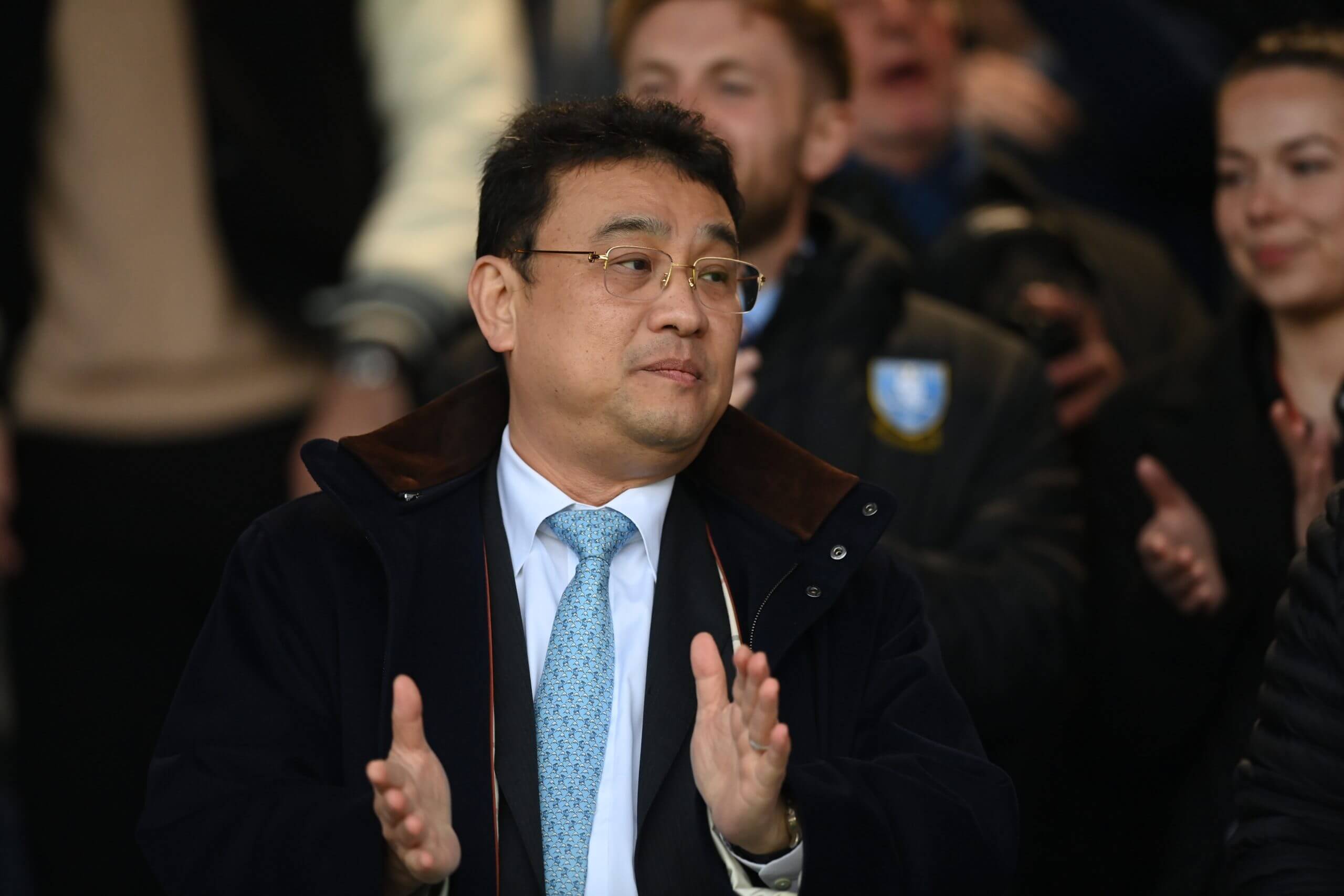Sheffield Wednesday’s perilous financial plight has worsened after being placed in administration by owner Dejphon Chansiri on Friday morning.
Staff at the Championship club have been informed of the situation.
Wednesday have endured a slow demise under Thai businessman Chansiri, whose leadership has drawn increasing criticism and protests from the club’s supporters.
Failure to pay wages on time in five of the last six months has pointed towards an uncertain future but a winding-up petition from HMRC, relating to unpaid taxes totalling £1million ($1.33m), has now led to Chansiri placing Wednesday into administration.
An automatic 12-point deduction from the English Football League (EFL) will see Wednesday fall to minus six points after 11 games of the Championship season and almost certainly bring relegation back to League One. A stretched and inexperienced squad has so far won just one game under head coach Henrik Pedersen.

Chansiri acquired Wednesday in 2015 (Michael Regan/Getty Images)
The Sheffield Wednesday Supporters’ Trust described the situation as “bittersweet”, adding that it was “overjoyed to have Dejphon Chansiri out of our club for good”. It also said that, should a “suitable sale” not be forthcoming, the trust has been working on a fan-led takeover proposal to avoid the club being liquidated.
The greater concerns of Wednesday fans will now be over the club’s long-term future.
The club’s accounts indicate that in the region of £115m is owed to Chansiri in the form of loans but a sale process led by his legal team since the end of last season has failed to bring new ownership.
The administration process and search for Chansiri’s replacement will be overseen by Manchester-based firm Begbies Traynor, which was previously appointed as administrators of Wigan Athletic in 2020. Paul Stanley, one of the administrators at Begbies Traynor, said: “There should be no interruption to the fixture schedule and we are in close contact with the EFL to ensure that the effects of this administration on the employees, supporters, the community and the players are minimised as far as possible.”
Culture, Media and Sport secretary Lisa Nandy called Wednesday’s situation “extremely worrying” and said work was “quickly” being done to give the regulator the powers it needs”.
Wednesday host Oxford United in the Championship at Hillsborough on Saturday, three days after a 1-0 home defeat by Middlesbrough saw the majority of their supporters boycott the fixture.
After the announcement on Friday, Wednesday’s players released a statement addressed to their fans, thanking them for their support and urging them to return to the stadium ahead of the Oxford game.
“Whilst we fully understand your stance and the measures you took to force change, as a group, not having you in the ground has been felt by all of us,” the statement reads. “After what has been a period of division and a feeling of ‘disconnect’ between the club, the players and the fans, we now hope this is the time we can all come back together under the badge and enjoy our football again!
“So we ask you, starting tomorrow against Oxford, please come back to Hillsborough and cheer the team on. Let’s make the ground a place for teams to fear as we do everything we can to get the points we are going to so desperately need.
“We won’t give up, and we ask you not to give up on us. Together we are stronger. Together we can fight.”
An EFL embargo is in place to limit Wednesday’s business after they breached a number of regulations relating to payments to HMRC, football creditors and a rival club.
Analysis
By senior football news writer Matt Slater
News that another English football team — one of the Premier League’s founding members, no less — have entered administration should never be described as “good” but, as administrations go, this one is at the better end of the spectrum.
Before I explain why, it is important to acknowledge that administration is not a get out of jail free card for badly-run clubs. First, there is the obvious sporting penalty, which practically confirms relegation, but second, and more importantly, there are very likely to be job losses. Suppliers, local and national, will also take a big hit on any debts the club has run up with them.
So, there will be pain and uncertainty while the administrators try to find a new owner for the club. But the very fact that we now have three people in charge whose only agenda is to rescue Sheffield Wednesday is why administration is the best possible outcome for the club today.
Because that was not Chansiri’s only motivation. He has spent over a year trying to find a rich idiot to massively overpay for the club so he can walk away from the damage he has caused with his “money back”. Rich idiots are clearly harder to find than he thought.
If that is not better news enough, I am also as confident as I can be about these things that this will be a relatively straightforward administration, as Sheffield Wednesday are clearly one of the biggest clubs outside the Premier League and will now be available at a realistic price as nearly all of the club’s debt, including Chansiri’s, is unsecured. The Athletic is aware of several potential bidders who have been waiting for this moment for some time.
The Thai claims he is owed more than £100million but he will do very well to see 25 per cent of that and is probably looking at far less.
The appointment of Begbies Traynor is also encouraging as it is by far the most experienced insolvency firm in UK when it comes to football administrations. With no cash in the business to play with, it is basically backing itself to find a buyer quickly, with the buyer paying its costs. That should incentivise a clean and quick process.
Wednesday situation highlights need for reform
Analysis by football finance writer Chris Weatherspoon
Wednesday’s slump into administration is at once both shocking and not a surprise.
On the one hand, Wednesday are one of England’s great clubs, backed by large support. Yet today’s news also marks the inevitable next stop for a club which has teetered on the financial edge for an age and where fans and owner are at war.
In the nine full seasons for which we have financials since Chansiri took over in January 2015, Wednesday lost £121m, a figure which would be £39m higher were it not for the club selling their Hillsborough home to another company owned by Chansiri in 2019 to help avoid a rules breach.
The losses pre-date Chansiri. The last time Wednesday turned a profit without the aid of a stadium sale or a loan write-off was 2008. At last check, Chansiri had injected over £128m in funding; now, the money, or his appetite to provide it, has dried up.
That is no defence of the chairman’s conduct but does highlight the financial peril lurking below the bright lights of the Premier League. Wednesday are one of many Championship clubs to have racked up soaring losses during their time away from the top table — clubs who are inevitably reliant on owners footing the bill. When that stops, as it has at Hillsborough, chaos ensues.
It is flippant to say Wednesday will probably be saved, but clubs tend to be and especially those with fanbases as large as theirs. But it is not a given.
Even if this sorry saga ends in good news, it should serve as yet another warning English football needs to get its finances in order. New regulator chief David Kogan recently said the IFR would have the power to force unsuitable owners to sell the club, but that doesn’t explain how bills would continue to be paid in the meantime.
Without structural reform to help clubs move away from reliance on owner funding, miserable tales like Wednesday’s will continue to unfold in English football.
